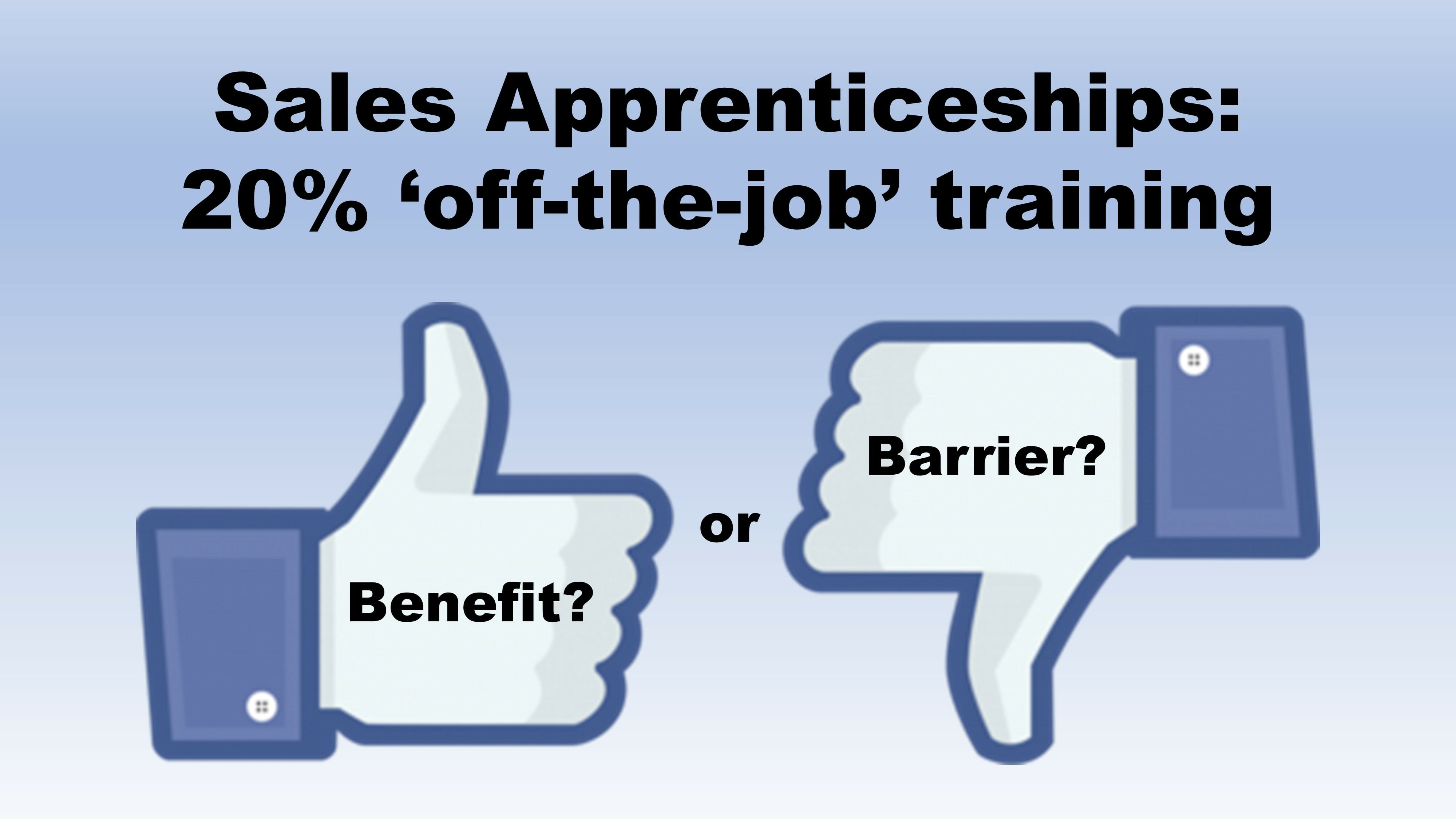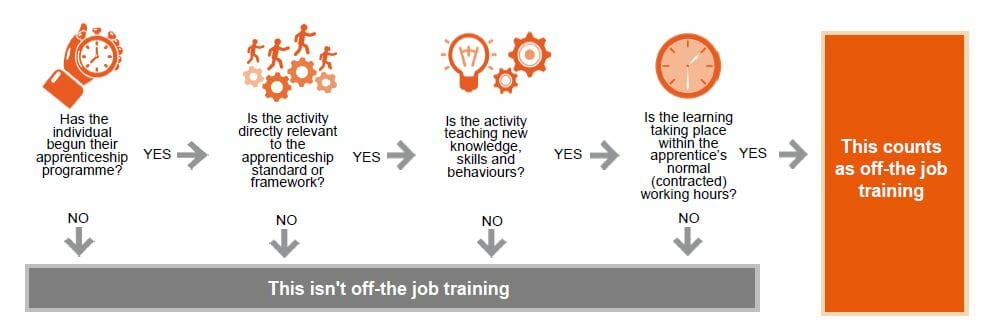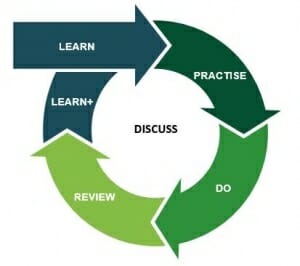What is the ‘20% off-the-job-training’ rule?
Apprenticeship rules state: Apprentices must spend a minimum of 20% of their paid working time completing ‘off-the-job’ training.
Understandably, many employers initially see this as a barrier to using funded apprenticeship training to help develop their new starters, or upskill their existing employees. However…
This is not the barrier that most employers fear it will be!
The first thing to note is that this ‘20% minimum’ requirement only applies to the training phase and not the end-point assessment phase of an apprenticeship programme. So typically, a full-time sales person enrolled on the Sales Executive Apprenticeship would spend, on average, 6-7 hours a week completing ‘off-the-job’ training activities over the course of their 10-14 month training period, then substantially less time ‘off-the-job’ preparing and completing their final assessment during their final 3-4 month assessment period.
Apprentices do not need 1-day ‘off’ each week for training!
To explain why, let’s first look at what the term ‘off-the-job training’ actually means.
What is Off-The-Job Training?
For many people, the term ‘off-the-job-training’ is misleading, or least its meaning isn’t clear without further explanation.
Whilst unsurprisingly for a government regulated programme, the rules governing off-the-job training are not succinct, they have published a helpful flowchart with steps to help determine whether an activity counts as off-the-job training:
As you can see, there is nothing within the flow-chart (or within the more detailed government guidance) which dictates where the training must take place. This helps to bust one common myth; the requirement for ‘off-the-job’ training does not mean the learning cannot happen within the work place.
For this reason, I believe that ‘off-the-job training’ may be better described as ‘managed learning’, or more accurately, as ‘managed learning of new knowledge, skills and behaviours that are directly linked to the apprenticeship standard, which takes place during the apprentices normal working hours’.
What types of activities can it include?
Off-the-job training may include almost any type of managed learning activity.
As you would expect, an apprentice’s off-the-job-training will include learning resources and activities provided and delivered by your training provider, but it can also include learning opportunities that happen naturally within the workplace.
As long as the activity meets the criteria outlined in the flow-chart above, almost any learning opportunity can count. Here are some examples of ‘off-the-job’ training activities that can count towards the 20% ‘off-the-job’ target:
|
|
|
Where these activities are delivered by the employer, it’s the role of the training provider to ensure the activity can and does count. To do so the training provider will:
1) map the objectives of the activity to the criteria published within the apprenticeship standard (to ensure the activity can count);
2) help the employer to capture the right information from the activity for each apprentice (evidence of learning rather than simply evidence of attendance); and
3) record the learning within the apprentices learning record.
Flexible work-based learning
So, off-the-job training can include managed learning in almost any form that is completed at almost any location. This enables innovative training providers to create flexible work-based learning programmes that not only comply with government rules, but also meet the learning needs of each individual apprentice, cause minimal disruption to the apprentices working role, and maximise the return on investment for the employer.
Our industry leading approach to blended work-based learning does just this. It not only ensures that apprentices remain engaged throughout their programme, it also ensures that the knowledge and skills they develop are quickly applied within the workplace, embedding behaviours and generating improvements that deliver a rapid return on training investment.
Further information
More detailed information can be found on .GOV.UK website. The Association of Employment and Learning Providers (AELP) have also published some easy-to-follow guidance too. Or alternatively…
Ask the author!
FieldStar Founder Steve Radford is a work-based learning professional specialising in on-the-spot and short-chain sales. Steve worked closely with the Trailblazer group of employers, providing consultancy advice and support as they developed the Standard and the Assessment Plan for the level-4 Sales Executive Apprenticeship.
Steve sits on the Education Board of the APS (the Association of Professional Sales), the nominated end-point assessment organisation for the Sales Executive Apprenticeship.
Steve is also Head of Sales Apprenticeships at The JGA Group, the apprenticeship management and delivery specialists that FieldStar have partnered with to launch our Sales Executive Apprenticeship Programme.
Steve has been described as ‘the most helpful person in field sales’, so for more information please feel free to get in touch with Steve, as he’s usually very happy to help.





Leave A Comment